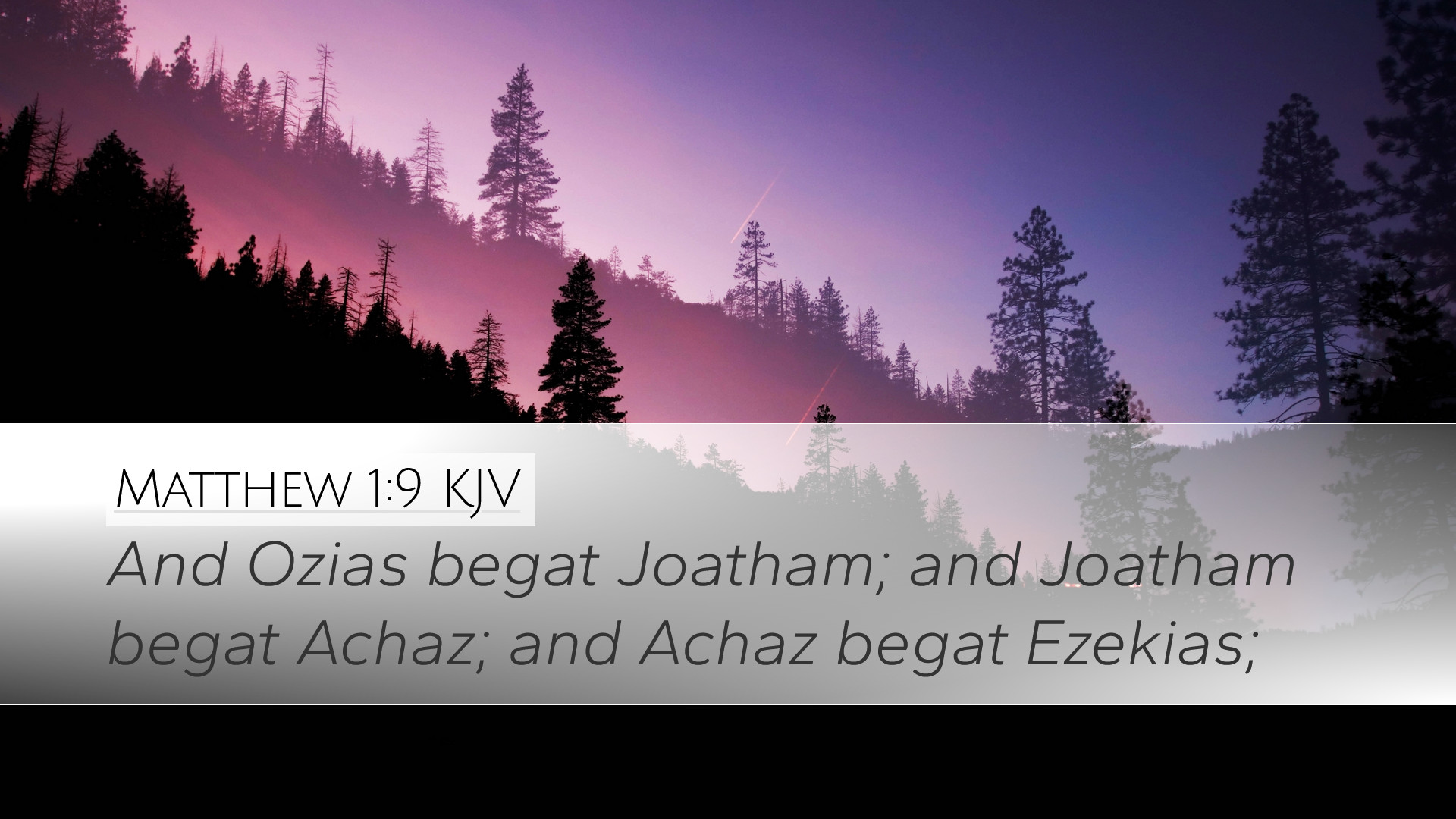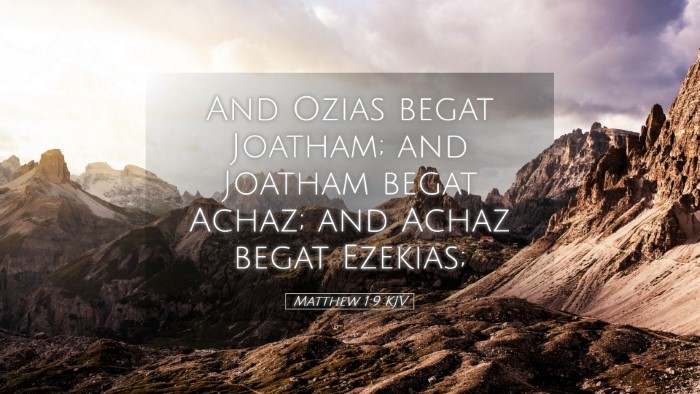Commentary on Matthew 1:9
The verse states: "And Ozias begat Joatham; and Joatham begat Achaz; and Achaz begat Ezekias." This is part of the genealogy of Jesus Christ, which Matthew emphasizes in his introduction.
Context and Significance
Matthew’s genealogy serves as a bridge to connect the Old Testament prophecies to the New Testament revelation of Jesus. The lineage signifies fulfillment of God’s covenant with David, portraying the legitimacy of Jesus as the Messiah.
Insights from Commentaries
-
Matthew Henry:
Henry notes the importance of the lineage, highlighting that it is not merely historical but also theological. The mention of Ozias (Uzziah), a king who had a mixed but significant reign, indicates that God’s plan of redemption includes both the righteous and the fallible. The grace of God is prominent, showing how He works through imperfect people.
-
Albert Barnes:
Barnes emphasizes that this genealogy also serves to prove the divine right of Christ to the throne of David. He points out that each name in the genealogy carries weight and history, illustrating God’s providence throughout Israel’s history. The instability during King Ahaz’s reign is noted as a contrast to the stability introduced through Christ.
-
Adam Clarke:
Clarke provides a critical examination of the names linked in this passage, particularly focusing on the character of each king. He notes that Joatham was a just king whereas Ahaz was notorious for his evil deeds which included idolatry. Clarke perceives this swing between righteousness and wickedness as reflective of the larger narrative of Israel’s history leading to the ultimate redemption introduced in Christ.
Theological Implications
This verse encapsulates the messiness of human history and leadership, while simultaneously affirming that divine oversight and covenantal faithfulness govern God’s plan. The biblical authors emphasize that the genealogy blends the holy and the profane, hinting at the inclusive nature of Jesus' ministry.
Christian Leadership
From a pastoral perspective, this passage offers insights into the nature of leadership and its consequences. The behaviors of leaders like Ahaz serve as cautionary tales, illustrating the importance of godly leadership.
Hope and Redemption
For theologians and students, the genealogy speaks of hope. Despite interruptions in leadership and faithfulness, God’s promises endure. The mention of a king like Ezekias, who was faithful and reformative, points to the hope believers have in Christ—our ultimate King who restores and redeems.
Conclusion
Matthew 1:9 is a rich verse that invites deeper exploration of God’s faithfulness throughout generations. The mention of these kings serves to remind believers that regardless of human shortcomings, God’s redemptive plan is steadfast. Understanding this verse through various commentaries enriches the narrative and offers profound truths for spiritual reflection and practical ministry.


